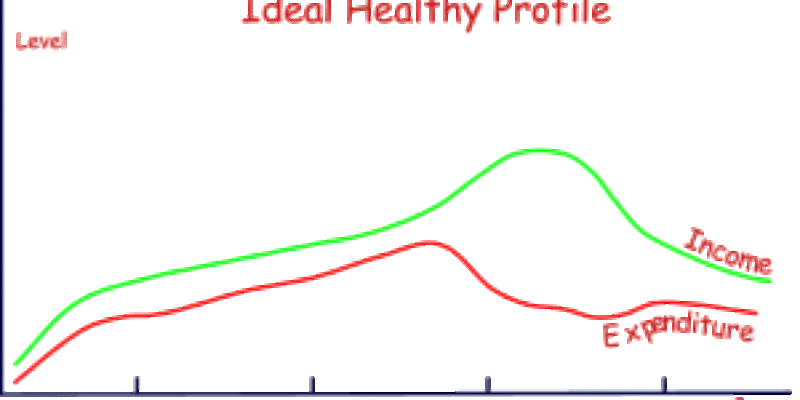About Greek art and the little things that make our lives
Usually on Thursdays I tell you about a book I have read, or an idea that I have got from a book; and sometimes I also engage in polemics but then I would, wouldn’t I? These past weeks, I have been so frightfully busy and so preoccupied that I have…
Politics and economy in the Eurozone part 1
The people have spoken in France and Greece. They do not like this austerity business one little bit. Can you blame them? After all it was not the people who caused the problem so why should they suffer while the banks get off scot-free? But what are the implications? What…
100 words on minimalism
We live in societies of over consumption and consume to offset the consequences of over consumption. Don’t believe me? How much did you eat today? Did you go to the gym to work out these extra calories? Did you drive to the gym? Told you so! This reminded me of…
It is all in the mind: about causality and the millionaire mind?
During the last week, two of my favourite bloggers, and blogging buddies, published articles about the characteristics of millionaires. Dom at Your Finances Simplified published 10 common characteristics of millionaires you can follow and Roshawn at Watson Inc asked why do the rich get richer? Both very interesting and well…
Money for all seasons II: income, spending and age profiles and received wisdom
In ‘Money for all seasons I’ I already described the seasons of our lives according to income and spending. I also set out some expectations and used these to ask you, my readers, to position yourselves within a season. In brief, I see the expectations of pitfalls in different ‘seasons’…
100 words on strategy
We hear a lot about strategy, lately. Everyone I know seems to be ‘strategising’, the organisation I work for has a strategy and most company websites greet you with a strategy. Getting to the core of it, these strategies amount to little more than wish lists and/or road maps….
Money for all seasons I: income, spending and age
This is the first of two posts in which the seasons of life and finance are outlined. In the next one, these are used to ‘profile’ and project financial health.
I have been joking that people have different preoccupations in different decades of their lives. During their 20s people are mostly interested in ‘sex, drugs and rock-n-roll’ (well, I was anyway); in their thirties, people start thinking about mortgages and children; in their forties, people worry about pensions and insurance; in their fifties they move to varicose veins and elderly parents; in their sixties concerns are focused on retirement and haemorrhoids; and after that…well, I have not got that far.
A couple of days ago, it suddenly hit me that in fact the building blocks of our lives and our finances are also very different at different stages of our lives. Have to admit that the theme John and I have been focusing on lately – the differences between generations – did help me crystallise this idea. Meanwhile, it was obvious from the outset that it is not very helpful to un-pack the relationship between earning, spending and the stages in our life by decades – earning and spending patterns don’t fit in decades; also the periods are not really even – some characteristics persist for longer than others.
This is when I remembered about the Wheel of Life. No, not the one that separates the different areas of life and is used by life coaches to make you consider your balance (my life is so out of kilter at the moment that any reminder of balance sends me into a fit of nerves and anxiety). The wheel of life I am talking about is the one painted by the pioneer of modern Bulgarian art in the Preobrazen monastery. It looks like this and the picture comes from a lovely blog called Zikata – if you would like to learn more about this monastery and the icon the link is here.

This Wheel depicts life as the four seasons: Spring, Summer, Autumn and Winter. This made me wonder what would happen if instead of thinking about our earning and spending by the decades of our life we think in terms of the seasons in our life.
100 words on job interviews
Performing at job interviews is what does it. I conducted many interviews and noticed that people make two simple mistakes. First, they impress the interviewers by obviously talking themselves up. Not impressive: employers are not interested in how great you are; they are interested in how well you could do…
100 words on making lists
In our drive to become efficient and achieve more we make lists. We keep these separate: we have a list for our grocery shopping; a list for our long, short and medium term goals; a list for our daily tasks. Some keep lists of the movies they have seen and…
Five things older people have and young people…
…need or would like to have. But before we go any further I wish to make it clear that this is not a mid-life crisis; like many other things in my life the inevitability of a mid-life crisis is planned for the Summer of 2014 when I’ll be dressed in leathers, on a Harley, my son sitting behind me riding towards the West coast of the US.
The reason I  got thinking about the great things that more advanced age brings is that I have been catching myself feeling really fearful of aging. Not surprising, really! Looking at the world we live in, we are surrounded by images glorifying the rigour, freshness and innocence of youth. On the walls in my gym – great looking, slim young people on top of mountains; on placards – young people with lovely smiles; at the cinema…oh well, what is on screen is an entirely different matter altogether. Or is it?
got thinking about the great things that more advanced age brings is that I have been catching myself feeling really fearful of aging. Not surprising, really! Looking at the world we live in, we are surrounded by images glorifying the rigour, freshness and innocence of youth. On the walls in my gym – great looking, slim young people on top of mountains; on placards – young people with lovely smiles; at the cinema…oh well, what is on screen is an entirely different matter altogether. Or is it?
The large effect of modest saving
 You know how according to my new publishing schedule I am supposed to publish useful and exciting book review and/or discussion today? Well, I have written one; actually I have two because I can’t wait to tell you about the new e-book by my friends at My University Money. But this will have to wait for a day or so because something happened today that took me in a completely different direction. Signs should be respected even by rationalists like me. So, here it goes.
You know how according to my new publishing schedule I am supposed to publish useful and exciting book review and/or discussion today? Well, I have written one; actually I have two because I can’t wait to tell you about the new e-book by my friends at My University Money. But this will have to wait for a day or so because something happened today that took me in a completely different direction. Signs should be respected even by rationalists like me. So, here it goes.
Last night, The Money Principle published a piece on the UK budget; one of the controversial points in it is the withdrawal of ‘child benefit’ – this is a relatively modest payment people with children get. Thinking through the budget and reading through John’s post, I had a niggling feeling that something was trying to come out; something that I have vaguely noticed before but never completely managed to get the grip of.
This morning John and I were having coffee, discussing another sticky point of the budget – the way in which it disadvantages people over 65 – and it suddenly crystallised and took definite shape. We mentioned that the child benefit is £20.30 (roughly $30) which means that we should be getting about £81.20 per month ($128). But I know my numbers and I knew that we have been getting £53.60 ($84) per 4 weeks. This can’t be right!
Have you reached your peak earning years?
About twenty years ago I went to one of these ‘do as I do and you will get rich by selling crap to suckers like you who want to get rich’ seminars. Don’t misunderstand me; I am all for proper wealth building seminars that openly admit that the only place where success is before work is in the dictionary and that not everyone in the room will end up wealthy. You know you have paid for a good one when you hear that statistically only a fifth of the attendees will take action and even a smaller proportion will do it smart!
This is not what I wanted to talk to you about though; what I remember very clearly from the really useless in any other way seminar I attended is the following:
‘You have reached your peak earning potential by the time you get in your 40s. After that, it is all over the hill!’
Although I was in my late 20s then, I remember my analytical nature objecting. Surely, this is far too young! Or is it?
Apparently, at the time of the seminar this was almost correct: twenty years ago, statistically, the peak earning years were 35 to 44. Today, however, this margin has moved by about ten years and it is 45-55. Now, you will understand that for obvious reasons I was very pleased to get my hands on this statistic. One, it means that I am half a decade away from my earning acme – much can happen in five years you know, particularly if one has a good plan and is taking action (my estimate is that if we achieve about 40% of what is on our plan we are doing spectacularly well). And two, this is a good one to pitch into any even remotely ageist debate – it is not only that I have better insurance because I am older; I also earn more now that I am older. Ha, ha!









